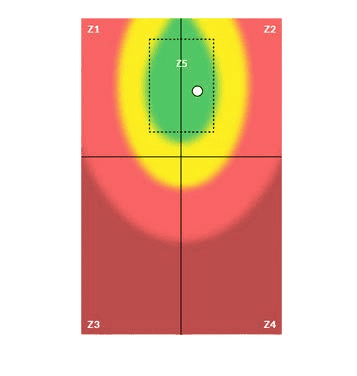Motherhood is an excessive amount of responsibilities, from caring for our children to managing household chores, work commitments, and more. It often feels like there needs to be more hours in the day to accomplish everything on our to-do lists. With carpool lines, meal prepping, loads of laundry, and trying to keep all of the kids accounted for, it’s easy for moms to neglect their own well-being, leading to exhaustion and burnout. Although motherhood is literally the best job in the world, it can also sometimes feel like the hardest, too. This season is full of joy, and it is very rewarding but can get lonely at times, which is why we created this little “survival guide” to help ease those tough days, to remind you to give yourself grace, that you are the best mother for your child, AND to give you some practical tips to help your overall health and wellbeing.
Understanding the Science
As mothers, our bodies undergo significant changes, both physically and mentally. Due to frequent hormonal changes, sympathetic overdrive, and exhaustion, we need to do all we can to support our bodies through motherhood. One key contributor to exhaustion is adrenal fatigue, a condition where the adrenal glands become overworked due to chronic stress. This constant state of heightened stress can lead to feelings of anxiety and overwhelm as our nervous system gets stuck in fight-or-flight mode. Moreover, the lack of quality sleep exacerbates the problem, leaving us reliant on caffeine to get through the day. Unfortunately, coffee, energy drinks, and other caffeine only act as band-aids, forcing us as moms to never get out of this cycle and help the root cause, which is helping our nervous system become more adaptable to all of this stress!
Tips for Survival
So, how can we navigate motherhood with resilience and adaptability? It starts with prioritizing self-care and making small but impactful changes to our daily routines. Here are some tips to help you thrive:
- Prioritize sleep: Aim for at least 7-8 hours of quality sleep each night by establishing a bedtime routine and creating a relaxing sleep environment.
- Fuel your body with nutritious foods: Focus on eating whole, nutrient-dense foods that nourish your body and provide sustained energy throughout the day. Start the day with protein first, even before coffee! Delegate tasks and ask for help: Don’t be afraid to ask for support from your partner, family members, or friends.
- Delegate tasks and responsibilities to lighten your load and give yourself time to recharge.
- Make time for self-care: Schedule regular self-care activities that rejuvenate your mind, body, and soul. Whether it’s taking a long bath, going for a walk in nature, or indulging in your favorite hobby, prioritize activities that bring you joy and relaxation, even if it is just 10 minutes to reset!
Success Story: Lisa’s Journey

Let me tell you about an amazing practice member, Lisa, and we’ll look at a set of Neurological Insight Scans.
Lisa initially brought her amazing son AJ into the office for Autism symptoms, nonverbal communication, retained reflexes, PICA, stimming and other sensory based concerns. After reviewing her son’s scans, she was made aware of how dysregulated his nervous system was, which was a major concern for his health.
After her son started care and she digested all the information she received from Dr. Tim pertaining to AJ’s care plan details, she finally opened up about the stress and dysregulation she was feeling. It was no surprise to Dr. Tim though, as signs of stress were visually observed from their initial consultation with AJ. Lisa also noted that she felt her dysregulation was intertwined with her sons health challenges, thus they were both struggling.
Lisa started her Neurologically Focused Chiropractic care journey along side her son. On her 1st progress evaluation (30 days and 12 adjustments later) she noted a 7/10 improvement with stress levels, migraines and sleep Along with improved digestion and circulation. With these improvements, Lisa was one happy mother.


Here are Lisa’s Initial HRV (left) and post HRV (right,); HRV = Heart Rate Variability. Lisa initially presented in the Quadrant 4, which is a weakened state and the most dire outlook; she was literally driving with the brakes in a seized position. Her post HRV scan showed a significant increase in her autonomic activity level!
Ready to see what your Neurological INSiGHT Scans look like?! Visit our website (www.MaximzieChiropractic.com) and book your consultation today!
Motherhood is the most extraordinary club to be a part of, but it is also just straight-up HARD sometimes. As a PX Doc, we hope that we can help you find the hope, answers, and drug-free help that you have been searching for… for not only your sweet kiddos and family but FOR YOU too!

